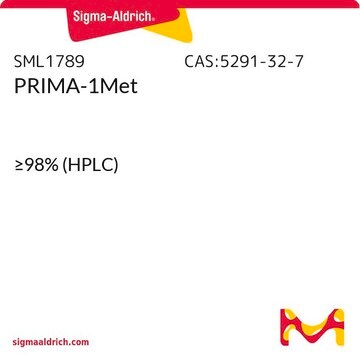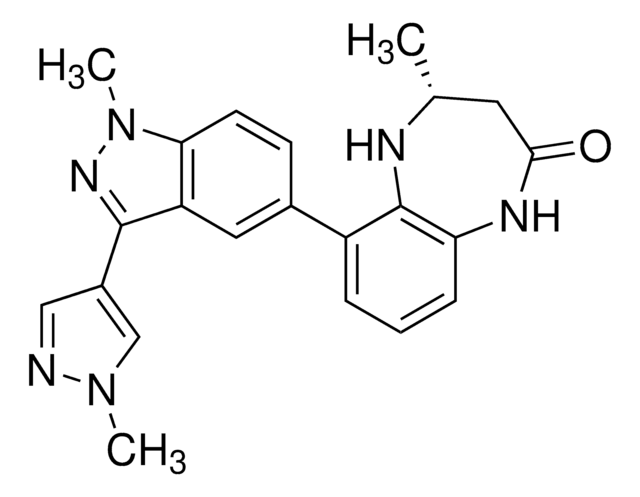5.33169
BET Inhibitor, I-BET726
Sinónimos:
BET Inhibitor, I-BET726, BET Inhibitor, BET726, GSK1324726A, 4-((2S,4R)-1-Acetyl-4-((4-chlorophenyl)amino)-2-methyl-1,2,3,4-tetrahydroquinolin-6-yl)benzoic acid
About This Item
Productos recomendados
assay
≥98% (HPLC)
Quality Level
form
solid
manufacturer/tradename
Calbiochem®
storage condition
OK to freeze
protect from light
color
light yellow
solubility
DMSO: 50 mg/mL
storage temp.
−20°C
General description
Please note that the molecular weight for this compound is batch-specific due to variable water content. Please refer to the vial label or the certificate of analysis for the batch-specific molecular weight. The molecular weight provided represents the baseline molecular weight without water.
Biochem/physiol Actions
BET
Warning
Reconstitution
Other Notes
Wyce, A., et al. 2013. Plos One.8, e72967.
Legal Information
Storage Class
11 - Combustible Solids
wgk_germany
WGK 3
flash_point_f
Not applicable
flash_point_c
Not applicable
Certificados de análisis (COA)
Busque Certificados de análisis (COA) introduciendo el número de lote del producto. Los números de lote se encuentran en la etiqueta del producto después de las palabras «Lot» o «Batch»
¿Ya tiene este producto?
Encuentre la documentación para los productos que ha comprado recientemente en la Biblioteca de documentos.
Nuestro equipo de científicos tiene experiencia en todas las áreas de investigación: Ciencias de la vida, Ciencia de los materiales, Síntesis química, Cromatografía, Analítica y muchas otras.
Póngase en contacto con el Servicio técnico








